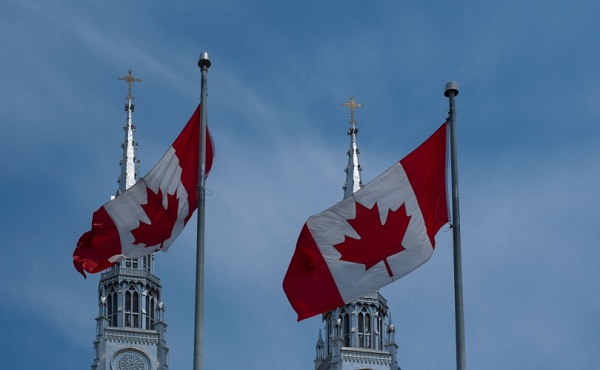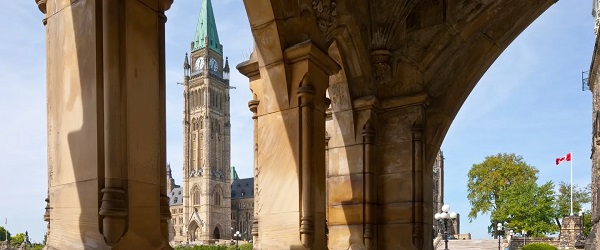Business
Canada’s Forest Sector Responds to Misleading Report

The legacy media is widely distributing an article outlining a report released by the Natural Resources Defense Council claiming Canada’s forestry sector emits even more carbon than Alberta’s oilsands. Not wishing to undergo the same vilification as the oil sector, the Forest Products Association of Canada is quickly countering the report with this article.
Article Submitted by the Forest Products Association of Canada
Earlier today, the Natural Resources Defense Council (NRDC) and Nature Canada jointly released a misleading and damaging report on Canada’s GHG emissions. Derek Nighbor, President and CEO, Forest Products Association of Canada (FPAC) issued the following statement in response:
Last week, economists from the Royal Bank of Canada confirmed their expectation that Canada will enter a recession in the first quarter of 2023. This presents unique challenges for working families in rural and northern Canada where economic prospects are often limited to a few key industries like agriculture, energy, mining, and forestry.
In hundreds of these communities across the country – from Prince George, BC to Corner Brook, NL – the forest sector is a central economic driver and provides jobs to over 200,000 Canadians. Beyond its economic contributions, Canadian forestry is known globally for its responsible harvest practices, high quality products, and its ability to help build a lower carbon economy. Canadian foresters also play an essential role in mitigating growing fire risks, protecting carbon rich wetlands, building with renewable, carbon-storing wood products, and creating environmentally friendly products from what would otherwise be wood waste.
Nordic countries show us how boreal forests can be managed to maximize carbon storage, even in a warming climate. Although their forests are much smaller, Finland and Sweden harvest six to eight times the timber volume per forested hectare than Canada does. At the same time, the net annual increase in stored carbon in Sweden’s forest is so large it reduces national GHG emissions by 70%. These Nordic governments have done something that Canada has not. In developing their climate plans, these leaders have worked with key industries like forestry to build sector-specific plans to maximize environmental and economic outcomes.
While we were disappointed to see another misleading report on forestry issued by the US-based Natural Resources Defense Council (NRDC) and Nature Canada, we were not surprised. Both NRDC and Nature Canada fundraise on their anti-Canadian forestry campaign rhetoric.
It’s worth noting that staff in NRDC’s New York, Washington, and San Francisco offices suggest they care about Canada’s forests and Canadian workers, even as they actively lobby multiple US states to encourage state legislators to restrict Canadian forest products coming into those states. For reasons that are difficult to understand, Nature Canada has chosen to be a willing partner.
Let’s be clear. Canada has a forest carbon problem that is caused by the worsening natural disturbance patterns we are seeing through drought, pest outbreaks, and catastrophic wildland fire. It’s a growing problem impacting forest health and resiliency, human health and community safety, and we urgently need constructive solutions – not deliberately misleading attacks.
FPAC continues to call on the federal government to follow the Nordic examples and work with our sector to develop a comprehensive plan for Canadian forestry, even as we contribute to the federal National Adaptation Strategy (NAS), which is a key deliverable and discussion matter at the upcoming COP 27 global climate conference next month in Sharm El Sheikh, Egypt.
Canadian forestry needs an NAS that minimizes climate-driven disturbance by actively reducing disturbance risk and supporting forest operations that maximize long-term carbon storage performance. This means increased timber harvests that value carbon and forest health – and the creation of new markets for low-grade wood fibre, including via thinning and residual biomass. It also means more forestry – not less. Forestry that will accelerate economic reconciliation with Indigenous communities, keep communities safer from fire risks, support biodiversity conservation and important ecosystem values, and provide good-paying jobs and careers in the rural and northern Canadian communities that desperately need them.
Business
Canada’s ‘supply management’ system makes milk twice as expensive and favours affluent dairy farms

From the Fraser Institute
By Fred McMahon
While the Canada-U.S. trade negotiations continue, with much speculation about potential deals, one thing is certain: Canada’s agricultural marketing boards remain a barrier to success.
A White House official said as much: “[Canada] has repeatedly demonstrated a lack of seriousness in trade discussions as it relates to removing trade barriers.” That’s a clear reference to agricultural marketing boards, our Iron Curtain trade barrier. International trade lawyer Lawrence L. Herman aptly described boards as “Canada’s Soviet-style supply management system.”
Agricultural marketing boards are as Canadian as maple syrup, but more so. Maple syrup is international. Supply management is uniquely Canadian. No other country has such a system. And for good reason. It’s odious policy, favouring an affluent few, burdening the poorest, and creating needless friction with allies and trading partners.
President Trump’s distaste for the boards is well known. But, it’s not just Donald. The European Union, the United Kingdom, the World Trade Organization (effectively all of Canada’s trading partners)—and, wait for it, the majority Canadian farmers—all oppose the boards.
Canada claims to support free trade, except when we don’t. Canada seals off a large portion of its agricultural market with the system, but gets irritable when another country closes part of its market—say for autos, aluminum or steel.
Marketing boards employ a variety of tools, including quotas and tariffs, and a large bureaucracy to block international and interprovincial trade and deprive Canadians of choice in dairy, eggs and poultry. Without competition, productivity stagnates and prices soar.
The cost of living in the United States is 8.4 per cent higher than in the Canada, rent 14.9 per cent higher. But, thanks to our marketing boards, milk is twice as expensive—C$3.07 a litre on average in Canada versus C$1.47 in the United States. The most recent estimate of the cost of the system revealed, using 2015 data, that the average Canadian household pays an extra $300 to $433 annually because of marketing boards, hitting hard poorer Canadians, who spend a higher portion of their income on food than affluent Canadians.
Martha Hall Findlay, former Liberal MP and leadership contender, now director of the University of Calgary’s School of Public Policy, wrote with outrage, “The average Canadian dairy farm’s net worth is almost $4 million…. This archaic [supply-management] system forces a single mother on welfare to pay hundreds of dollars more per year than she needs to, just so we can continue to enrich a small number of cartel millionaires… members of the oft-vilified ‘one-percent’.”
Don’t expect meaningful negotiations. Canada’s Parliament, endorsed by the Senate, recently unanimously passed Bill C-202, which prohibits the foreign affairs minister from negotiating increased quotas or reduced tariffs for imports of supply-managed products.
The dairy industry, particularly in Quebec, is the big player. To protect this mighty lobby, Bloc Québécois Leader Yves-François Blanchet proposed C-202, backed by all parties, fearing a Quebec backlash if they stood up for Canadians, including for Quebecers who lack the privilege of owning one of province’s 4,200 multi-million-dollar dairy farms of Canada’s 9,400.
The Canadian Agri-Food Trade Alliance (CAFTA), Grain Growers of Canada (GGC), and other farm groups oppose C-202. Scott Hepworth, acting chair of GGC, said, “Parliament chose to prioritize one group of farmers over another. As a grain producer, I know firsthand how important international trade is to my family’s livelihood. Without reliable access to global markets, farmers like me are left behind.”
Canada has 65,000 grain farms and 53,000 pig and beef farms, compared to 14,700 supply-managed farms, less than one per cent of the total of 190,000 farms in Canada.
Marketing boards benefit a tiny minority of Canadian farmers while damaging the majority and increasing prices for all Canadians. One benefit of Donald Trump’s trade war against Canada has been the resolve on all levels of government to reduce home-grown obstacles to growth, including iron trade curtains between provinces.
The spineless response to C-202 reveals the weakness of that resolve and politician’s willingness to bend the knee to rich lobbies, toss other farmers under the bus, and carelessly pile on costs for Canadians, particularly low-income ones.
Business
Conservative MPs denounce Liberal plan to strip charitable status of pro-life, Christian groups

From LifeSiteNews
Conservative MPs presented a petition in Parliament defending pro-life charities and religious organizations against a Liberal proposal to strip their charitable tax status.
Conservative MPs presented a petition calling for the rejection of the Liberals’ plan to strip pro-life charities and places of worship of their charitable status.
During the September 16 session, Conservative Members of Parliament (MPs) Andrew Lawton, Jacob Mantle, and Garnett Genuis defended pro-life charities and places of worship against Liberal recommendations to remove the institutions’ charitable status for tax purposes.
“I have received from houses of worship across this country so much concern, reflected in this petition, that these recommendations are fundamentally anti-free speech and anti-religious freedom,” Lawton told Parliament. “The petitioners, and I on their behalf, advocate for the complete protection of charitable status regardless of these ideological litmus tests.”
Similarly, Mantle, a newly elected MP, added that Canadians “lament that some members opposite are so blinded by their animus towards charitable organizations that they would seek to undermine the good works that these groups do for the most vulnerable Canadians.”
Religious charities provide care and compassion to the most vulnerable in our society, but some members of the Liberal and New Democratic parties are so blinded by their animus towards religion and faith that they are actively seeking to revoke the charitable status of ALL… pic.twitter.com/O12rkw3pJ0
— Jacob Mantle (@jacobmantle) September 16, 2025
Finally, Genuis, who officially presented the petition signed by hundreds of Canadians, stressed the importance work accomplished by religious and pro-life organizations.
“(R)eligious charities in Canada provide vital services for society, including food banks, care for seniors, newcomer support, youth programs and mental health outreach, all of which is rooted in their faith tradition, and that singling out or excluding faith charities from the charitable sector based on religious belief undermines the diversity and pluralism foundational to Canadian society,” he explained.
As LifeSiteNews previously reported, before last Christmas, a proposal by the all-party Finance Committee suggested legislation that could strip pro-life pregnancy centers and religious groups of their charitable status.
The legislation would amend the Income Tax Act and Income Tax. Section 429 of the proposed legislation recommends the government “no longer provide charitable status to anti-abortion organizations.”
The bill, according to the finance department, would require “registered charities that provide services, advice, or information in respect of the prevention, preservation, or termination of pregnancy (i.e., destroying the unborn)” to disclose that they “do not provide specific services, including abortions or birth control.”
Similarly, Recommendation 430 aims to “amend the Income Tax Act to provide a definition of a charity which would remove the privileged status of ‘advancement of religion’ as a charitable purpose.”
Many Canadians have warned that the proposed legislation would wipe out thousands of Christian churches and charities across Canada.
As LifeSiteNews reported in March, the Canadian Conference of Catholic Bishops (CCCB) appealed to the Liberal government to rethink the plan to strip pro-life and religious groups of their tax charity status, stressing the vital work done by those organizations.
-

 Crime2 days ago
Crime2 days agoStruggle for control of the Sinaloa Carel has ramifications for Canada
-

 Crime2 days ago
Crime2 days agoU.S. Lawmakers Confront Chinese Government Conspiracy Behind Marijuana Boom
-

 COVID-192 days ago
COVID-192 days agoCanadian gov’t to take control of vaccine injury program after reports of serious mismanagement
-

 Censorship Industrial Complex2 days ago
Censorship Industrial Complex2 days agoThe FCC Should Let Jimmy Kimmel Be
-

 Addictions1 day ago
Addictions1 day agoNo, Addicts Shouldn’t Make Drug Policy
-

 Alberta1 day ago
Alberta1 day agoEducation negotiations update: Minister Horner
-

 COVID-191 day ago
COVID-191 day agoNew Study Obliterates the “Millions Saved” COVID Shot Myth
-

 Business2 days ago
Business2 days agoThe Real Reason Tuition Keeps Going Up at Canada’s Universities







